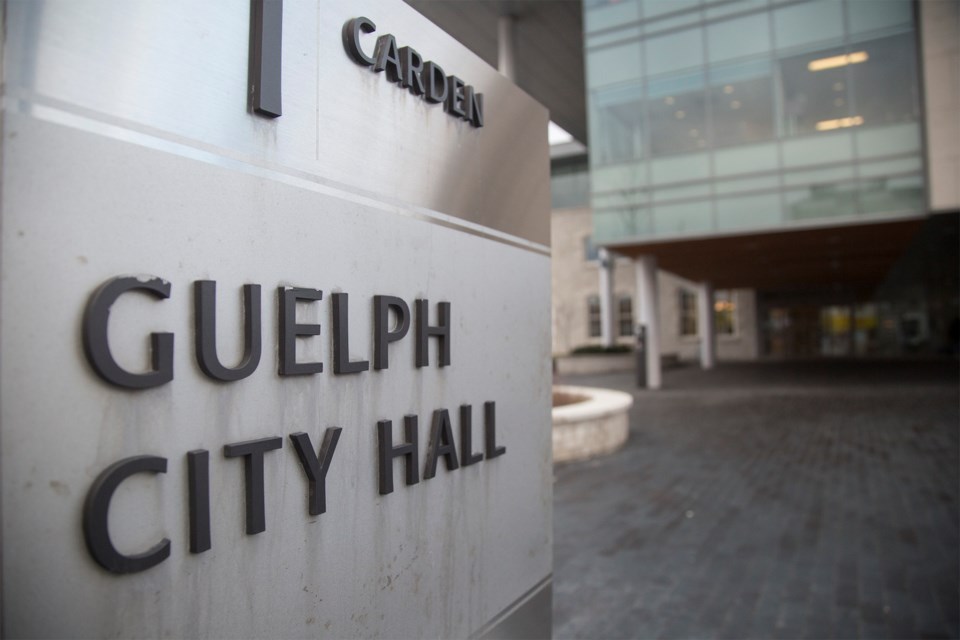The first thing city council should look at in an effort to lessen the draft double-digit property tax increase is to pause service expansion plans, going beyond already deferred efforts, say city staff.
That includes things such as the planned pedestrian bridge connecting Emma and Earl streets over the Speed River, new sidewalk construction, parks equipment, road safety initiatives and more.
As a last resort, council could contemplate reducing existing services.
In between, city staff recommend council consider slowing down the pace of growth and reductions to projects intended to help the municipal corporation achieve its goal of running on 100 per cent renewable energy by 2050.
Those are the ideas put forward to council in a memo for consideration heading into a Wednesday evening workshop that will see discussions about how to bring down the draft 2024 to 2027 budget which includes property tax increases of 10.32 in 2024, 9.38 per cent in 2025, 8.67 per cent in 2026 and 6.67 per cent in 2027.
The draft 2024 tax increase means an additional $451.92 in 2024 alone for the average household, with a municipal assessment of $407,000.
“The first option to consider for reduction to Guelph’s 2024-2027 (multi-year budget) should be related to new investments,” the memo states.
There are numerous items highlighted for council to consider on this front. They include the phasing-in of operating costs for the new South End Community Centre and public spaces within the Baker Street redevelopment project; new sidewalk construction, pedestrian signals and road safety initiatives; several new staff positions; new parks and play equipment; and others.
Next on staff’s priority list for consideration of cuts is decreasing the number and capital projects meant to help the city achieve zero carbon emissions by 2050.
They include numerous enhancements to the city’s active transportation network - trail enhancements, Guelph Transit route expansions, road reconstruction efforts including bike lanes, etc. - as well as upgrades to municipal facilities, all of which are paid for through reserves – with payments to reserves allocated annually.
“Should council wish to reduce the funds going into these reserve funds, they would also need to reduce, defer or remove capital projects of at least an equal value from the budget,” the memo reads.
“Reducing investments in these areas would be accomplished by reducing the annual transfers to the respective reserve funds, along with removing capital projects funded from these sources.
Last on its priority list,city staff note council can consider cutting back on existing city services.
“This should be considered as a last resort as impacts to services cannot be avoided if a decision is made to reduce existing department and capital project budgets,” states the report. “Department service level reductions vary but may include items such as reduction in annual road paving, preventative maintenance on assets, grass cutting cycles, Sunday transit service, communication and community engagement activities, slowing the pace of efforts in equity, diversity and inclusion or the elimination of loose-leaf collection, to name a few.”
A little less than half of the proposed tax increase comes from things under council’s control, while the rest stems from council’s outside boards and committees (police, library, public health, etc.) and what Mayor Cam Guthrie has highlighted as the impact provincial legislation changes and underfunding from the province on its responsibilities.
Also noted in the memo to council is a revision to the assumed assessment revenue growth, which was set at 1.15 per cent.
However, an update from the Municipal Property Assessment Corporation shows the estimate is now 1.23 per cent, resulting in a 0.08 per cent reduction to draft property tax increases.
Further, the draft tax increase is also brought down by 0.34 per cent as a result of a $1 million reduction in funding for social services provided through the County of Wellington.
The staff memo notes the reduction follows a “review” of the county’s portion of the budget but provides no details about how that reduction was achieved.
Attempts to reach county officials for details weren’t immediately successful.
Other outside boards and committees were also asked to review their budgets and find savings too, though the county is the only one to bring forward reductions.
The board of directors for The Elliott Community said its budget can’t be lowered, as did Wellington-Dufferin-Guelph Public Health.
No response was received from Guelph police, Guelph Public Library, Downtown Guelph Business Association or the Grand River Conservation Authority, the memo notes.
